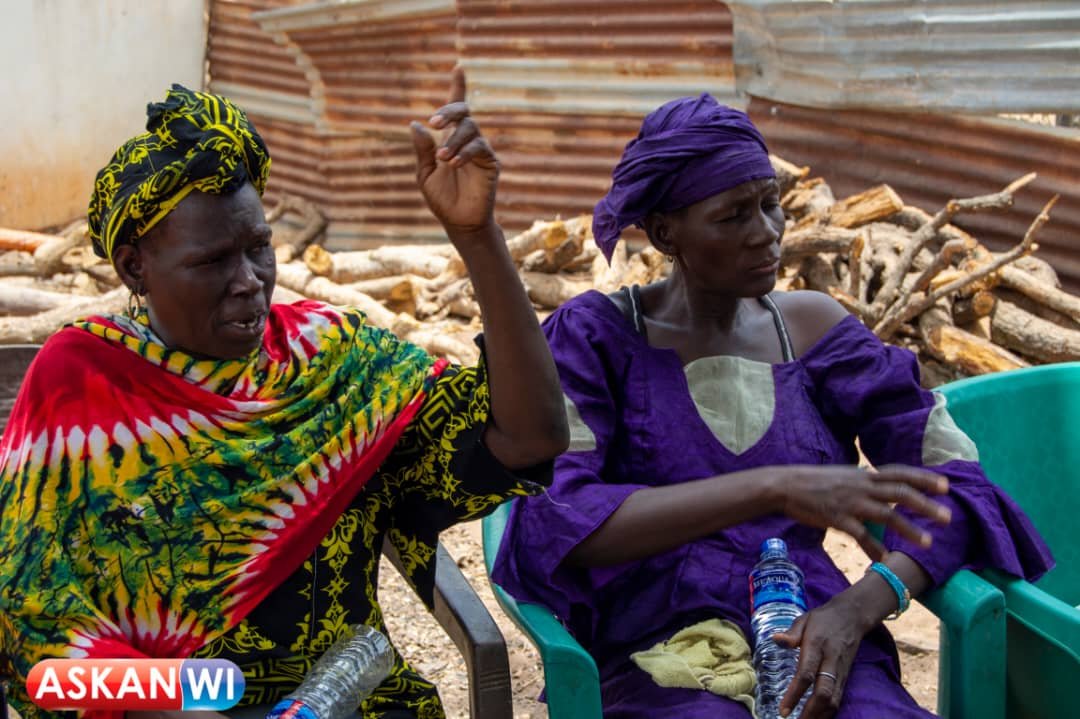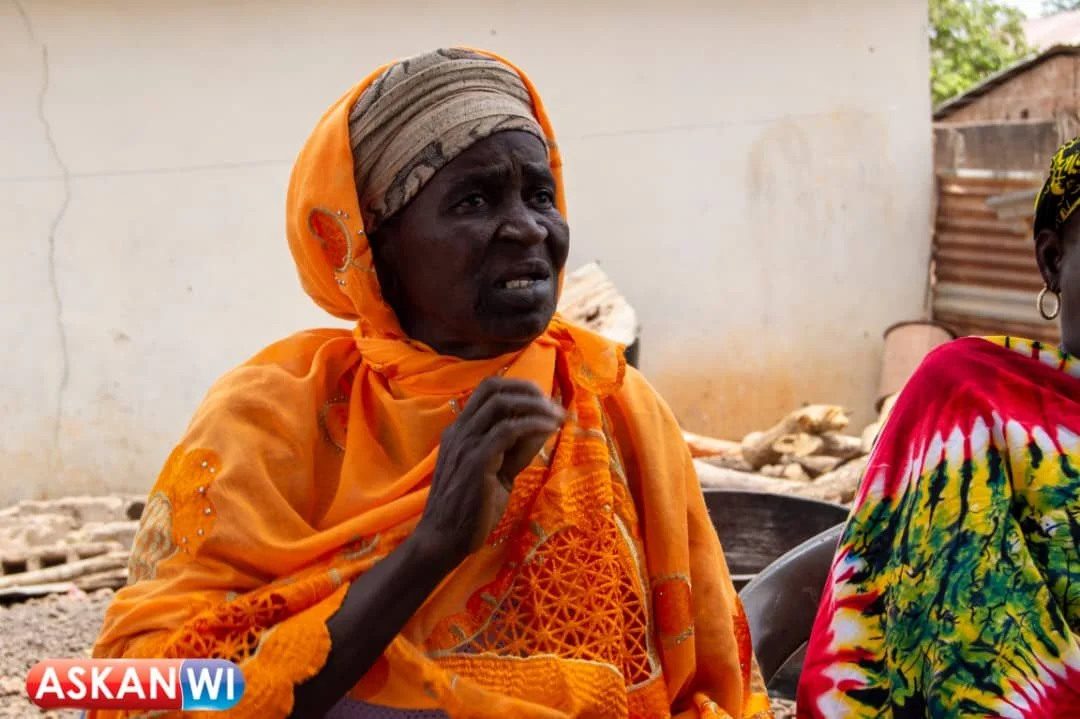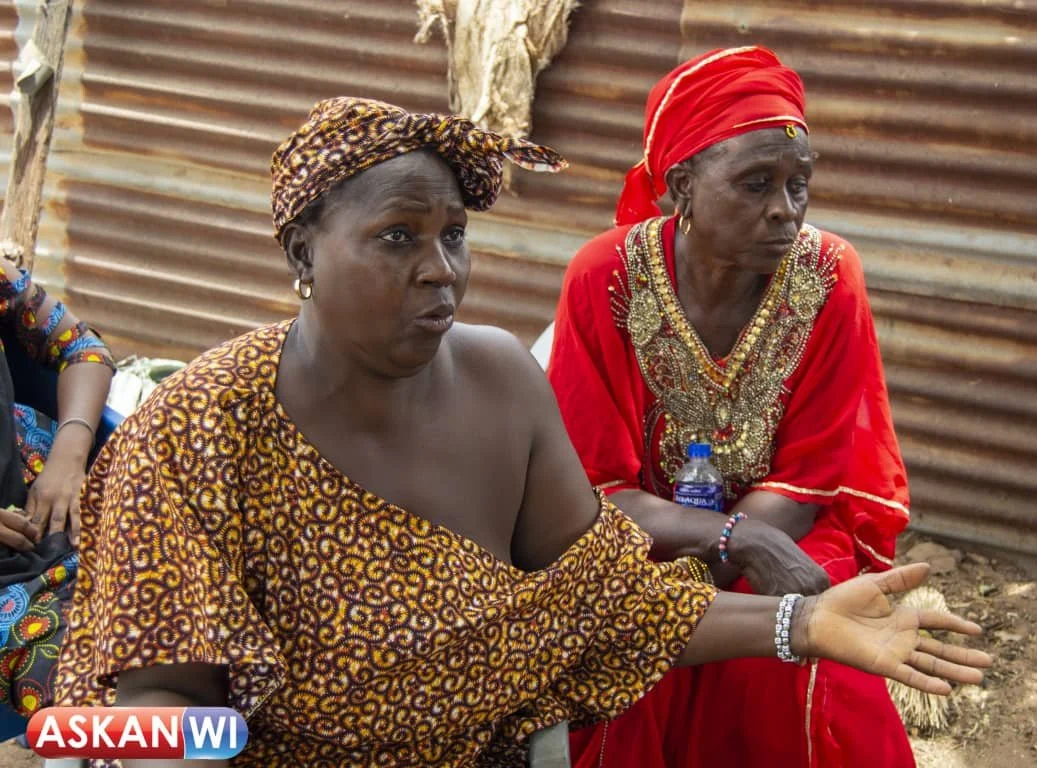“We Are Dying Without Justice”: Basse Victims Plead for Reparations
Victims in Basses urge Government to fast-track reparations © Askanwi
By Edward Francis Dalliah
Basse, Upper River Region — Beneath the shade of a mango tree in Manneh Kunda, Basse, victims of former President Yahya Jammeh’s regime gathered to issue a heartfelt appeal to the government: expedite the long-overdue reparations process. Their plea is fuelled by the painful reality that some victims have died without ever receiving support, while others continue to suffer in silence.
The meeting, held on Thursday, 22nd May 2025, was organised by the Women’s Association for Victims’ Empowerment (WAVE) as part of their weeklong engagements. It brought together survivors from surrounding villages to discuss the post-Truth, Reconciliation and Reparations Commission (TRRC) process.
WAVE’s Listening and Talking Circles were supported by the Africa Transitional Justice Legacy Fund (ATJLF), where they engaged four communities – Bansang, Sabach Njien, Sintet, and the combined communities of Sibanor and Somita – through a weeklong program. The initiative gathered victims’ perspectives on the ongoing transitional justice process, evaluating government commitments, beneficiaries, sustainability of gains, and measurable outcomes. It also explored challenges faced by victim communities, the support they have received, and identified steps needed to foster lasting positive change.
Attendees voiced growing frustration over the government's delay in implementing reparations. Several shared that fellow victims had passed away without any compensation. Others spoke of ongoing battles with chronic health issues, urgently requiring both medical care and financial support.
Victims in Basses urge Government to fast-track reparations © Askanwi
The TRRC concluded its public hearings in 2021 and recommended a robust reparations programme for victims of human rights abuses during Jammeh’s 22-year rule. Volume 16 of its final report stressed that “reparations to victims are a key element of the Gambian Transitional Justice Process.”
The government echoed this stance in its May 2022 White Paper, affirming that reparations are “an important component of The Gambian Transitional Justice Process [which] seeks to restore the dignity of victims through acknowledging the wrongdoing, the harm suffered, and the state’s responsibility to promote, protect and fulfil human rights.” The document also emphasised that reparations are “an essential part of The Gambia’s healing process”.
Yet, despite these assurances, progress has been painfully slow. Of the 262 TRRC recommendations accepted by the government, only 16—just 6%—had been implemented by 2024. This sluggish pace has raised alarm among victims and human rights advocates.
While the government has passed the Reparations Act, creating a Reparations Commission to oversee compensation and rehabilitation, the commission has yet to become fully operational. Alarmingly, this year’s reparations budget is the lowest since funding began, raising serious questions about the state’s commitment to justice and healing.
At the First Post-TRRC Convergence, held in December 2024, Ms. Sirra Ndow, Chairperson of the Alliance of Victim-Led Organisations (AVLO), voiced the victims' mounting dissatisfaction. “I got a call yesterday from one of the victims,” she recounted emotionally. “He was trying to get hold of a doctor and told me, ‘This is a difficult period for me—the cold season.’” Her words reflect the continued hardship and despair many victims face years after their suffering.
Despite these setbacks, civil society organisations like WAVE remain on the front lines—educating communities, amplifying victim voices, and advocating for swift, inclusive implementation of the TRRC’s recommendations. Their efforts serve as a reminder that while justice may be delayed, it must not be denied.
Victims in Basses urge Government to fast-track reparations © Askanwi



